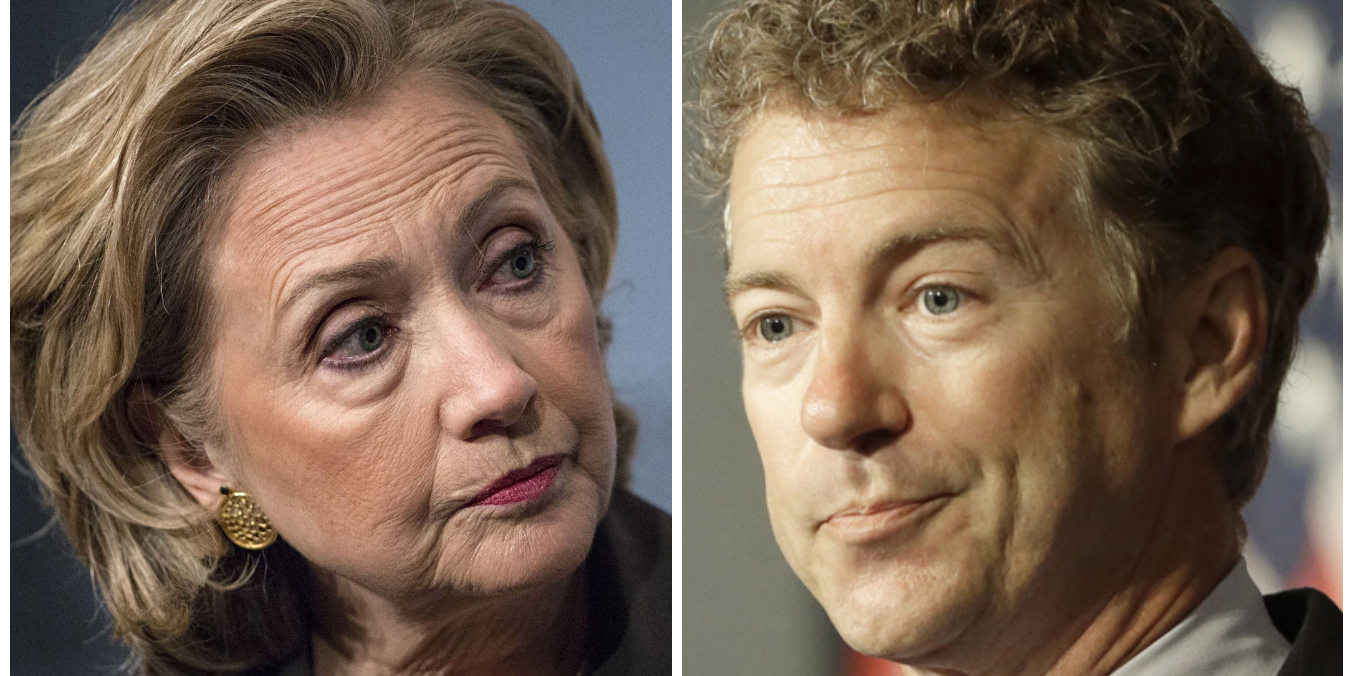For a while it seemed as if Hillary Clinton had learned her lesson and caged her inner hawk. After all, she would have won the Democratic presidential nomination—and likely the general election—in 2008 if she had voted against the Iraq war.
Videos by Rare
Instead Clinton, a liberal interventionist like her husband, voted in favor of invading Iraq. Barack Obama opposed the war, albeit from the safety of the Illinois state legislature. The rest was history.
In an illuminating interview with The Atlantic’s Jeffrey Goldberg, Hillary lets the hawk out of the cage. She blames the chaos unfolding in Iraq not on the war she voted for but on the Obama administration’s failure to intervene more heavily in Syria, such as by arming the rebels.
“The failure to help build up a credible fighting force of the people who were the originators of the protests against Assad—there were Islamists, there were secularists, there was everything in the middle—the failure to do that left a big vacuum, which the jihadists have now filled,” Clinton told Goldberg.
“They were often armed in an indiscriminate way by other forces, and we had no skin in the game that really enabled us to prevent this indiscriminate arming,” she continued. (Never mind that the U.S. did, in fact, have skin in the game and went as far as to contemplate war in Syria.)
“Great nations need organizing principles, and ‘Don’t do stupid stuff’ is not an organizing principle,” Clinton said in a slap at Obama that sounds more than a little bit like the “national greatness conservatism” of New York Times columnist David Brooks.
“Wishing to be left alone isn’t a governing doctrine,” Brooks and Weekly Standard editor Bill Kristol memorably wrote in 1997. They added, “It almost doesn’t matter what great task government sets for itself, as long as it does some tangible thing with energy and effectiveness.”
Some of this is simply Clinton’s attempt to distance herself from Obama’s metastasizing foreign-policy failures, since she not only shares a party with the president but also served as his secretary of state.
And there was plenty of Clintonian triangulation between Obama and George W. Bush. Goldberg paraphrases her as arguing “there is a happy medium between bellicose posturing (of the sort she associated with the George W. Bush administration) and its opposite, a focus on withdrawal.”
But it’s worth noting that her overall framing of the threat posed by radical Islam differs little from the neoconservatives and their liberal hawk little buddies. When the former advocates war, the latter usually goes along for the ride.
Bill and Hillary Clinton worked for George McGovern, but hitched their political rise to the Democratic Leadership Council. These 1980s and ‘90s New Democrats (rightly) saw McGovernite dovishness as a political liability from which they hoped to dissociate themselves.
Even some conservatives were impressed with Hillary’s tough words, which Matt Lewis described as “music to the ears of both GOP and Democratic hawks, friends of Israel, and many Americans of all political stripes watching in horror as ISIS commits crimes against humanity in Iraq.”
But the failed military interventions of Bush and Obama are more recent than McGovern’s hapless 1972 campaign. As Michael Brendan Dougherty put it in The Week, Clinton’s approach would “get America stuck in confusing entanglements with gun-wielding losers and child-beheaders.”
Many Americans, particularly independents and swing voters, are war-weary. They will want an alternative to Clinton’s foreign policy.
This time around, it doesn’t seem likely that the Democrats will provide such an alternative. Obama was in the right place at the right time. A Hillary challenge will be a taller order for Bernie Sanders or even Elizabeth Warren.
Might this alternative come from the Republican Party? The potential presidential candidate best situated to take advantage of Hillary’s hawkish turn is Rand Paul.
Writing in The Federalist, Ben Domenech warns “the real danger for Paul is to be tagged as no different from an Obama-Kerry liberal” on foreign policy.” At the moment, many Republicans are pretending Obama represents retrenchment and restraint, an “isolationist” abandonment of America’s global leadership role that is setting the world ablaze.
That argument could get harder to make if come 2016 Obama is still launching air strikes and pursuing regime change in Iraq. But by that time, Republicans won’t be running against Obama anymore. Their opponent will be Hillary the hawk.
Paul will be positioned to be the anti-Hillary: anti-Obamacare, anti-big government and relatively antiwar. In a Republican primary, being anti-Hillary is not a bad thing.
The senator from Kentucky may be able to demonstrate that Clinton’s politics and foreign policy are indeed yesterday’s news.



